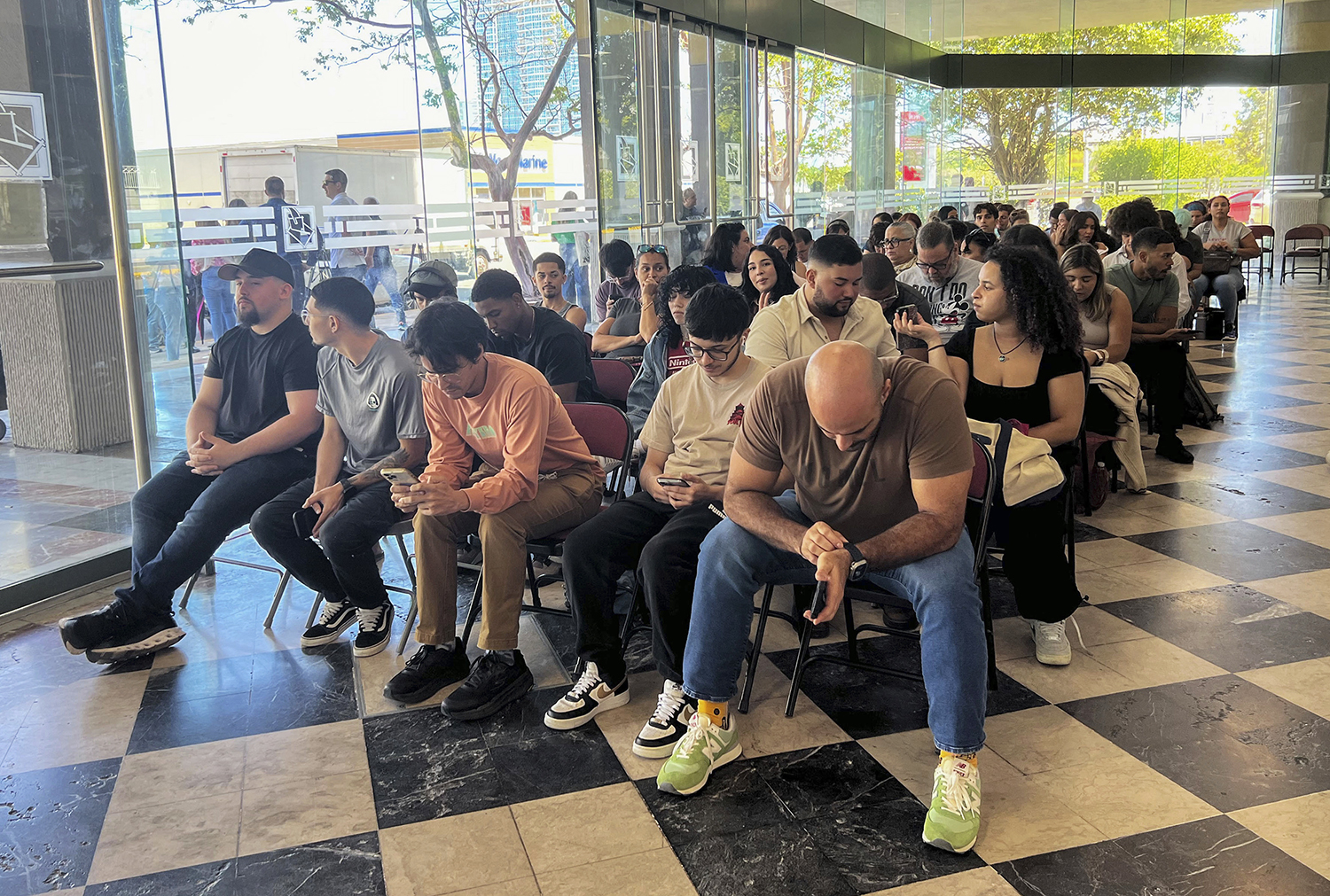
(RNS) —In the summer of 2022, when superstar reggaeton artist Bad Bunny released “Un Verano Sin Ti” (“A Summer Without You”), an album that went on to become Spotify’s most streamed album of all time, even the archbishop of San Juan, Puerto Rico, came down with Bad Bunny fever.
Calling the singer a “phenomenon,” Archbishop Roberto González Nieves reflected the fierce pride Puerto Ricans had for Bad Bunny and commended the global star’s mission as a troubadour for our time. “In his personal life, up until now, impeccable,” the archbishop wrote in Spanish.
Bad Bunny, a native of Vega Baja, west of San Juan, whose real name is Benito Antonio Martínez Ocasio, gets less-positive reviews from Catholic conservatives whose objections, citing Bad Bunny’s party tracks heavy on sexual innuendo, prompted González to apologize for his praise, while still noting, “Thousands of our Catholic youth are his followers.”
The artist has had an irreverent relationship to the faith: The former altar server and chorister at his home parish appeared last fall with Mick Jagger in a “Saturday Night Live” skit in which the two donned nuns’ habits as the nuns worked to find the men hidden in the convent. In a June article in Vogue Italy, Bad Bunny said he doesn’t pray. “I don’t pray myself, but I know that my mother, my grandmother, and my aunt do it for me,” he said.
But Bad Bunny, who defended Puerto Rico after comedian Tony Hinchcliffe referred to the U.S. territory as “a floating island of garbage” at a rally for former President Donald Trump in New York, has recently shown fans a newly prayerful posture.
In September, as the island faced down what meteorologists warned would be a historic hurricane season, Bad Bunny released “Una Velita” (“A Candle”), a moody track containing a prayer for the island as a storm approaches.
“It’s starting to rain, it’s gonna happen again/Here comes the storm, who will save us?” the song asks in Spanish before praying for Puerto Rico’s protection. “And may God protect Borinquen/In the name of the Father, of the Son,” invoking the island’s Indigenous name.
Bad Bunny himself finishes the invocation with “And of the Holy Spirit,” going on to pray in the single, which mixes political and spiritual messages, “may God look after my song/I don’t want his awning, I want his mantle.”
On Sunday (Nov. 3), Bad Bunny’s unusually heartfelt and fervent prayer took center stage at a rally in San Juan in support of a coalition containing a pro-independence party, days before a historic gubernatorial election in Puerto Rico.

Puerto Rican singer and musician Bad Bunny spoke at the Festival of Hope event in San Juan supporting the pro-independence party in Puerto Rico ahead of the 2024 gubernatorial election. Video screengrabs courtesy Página oficial Patria Nueva PR Youtube
The crowd of more than 50,000 was gathered for the Festival of Hope, put on by The Alliance, a third-party coalition formed between the Puerto Rican Independence Party and the Citizen Victory Movement and running on an anti-corruption platform. The crowd size, the celebrity support and a recent poll showing that Juan Dalmau, the gubernatorial candidate for The Alliance, has gained on the ruling New Progressive Party’s Jenniffer González were all signals that Puerto Rico may be on the precipice of a historic election.
Until recently, it has been unthinkable that a third party could challenge the political dominance of the New Progressive Party, which supports statehood, and the Popular Democratic Party, which supports the island’s status quo as a territory of the U.S.
But in recent years, Puerto Ricans have faced chronic power outages, austerity policies established by a fiscal board instituted by the U.S. Congress — territories do not have voting representation in Congress — an exodus of hundreds of thousands of working-age people and the aftermath of 2018’s Hurricane Maria.
In September, the Center for Investigative Journalism in Puerto Rico found that both the New Progressive Party and the Popular Democratic Party had been engaging in extensive electoral fraud.
Bad Bunny has been a major voice for the discontent among Puerto Ricans with the status quo, including in previous songs such as 2022’s “El Apagón” (“The Power Outage”). In 2019, he teamed up with artists Residente and Ile to release one of the theme songs of the protests that forced former Gov. Ricardo Rosselló to resign.
Less than a week after releasing “Una Velita” in September, Bad Bunny acknowledged he had paid for several billboard ads criticizing Puerto Rico’s two major parties, and the New Progressive Party retaliated by paying for a billboard that attacked Bad Bunny and included an obscenity.
In his performance on Sunday, which began with an excerpt of the revolutionary national anthem, Bad Bunny rapped, “It’s up to the people to save the people.” After several anti-government lines, he continued, “They let 5,000 people die, and we’re never going to forget that,” in reference to Hurricane Maria.
“I dream of a Puerto Rico free of all those corrupt people, free of all the abusers,” he said in a speech alongside the performance. “Today, I do not have a party. My party is the people. My party is Puerto Rico, the people,” he said, explaining the people had told him to support Dalmau and the alliance backing him.
As much as it is a prayer for his native island’s safety, “Una Velita” is a prayer for political change, and Bad Bunny’s fans have recognized its twin messages. “The palm tree they want to use to hang the country, one of these days we’ll knock it down,” sings Bad Bunny in the song. In a comment left on YouTube, a listener replies, “In November the Puerto Rican people will knock down that palm tree Benito, you’ll see.”
